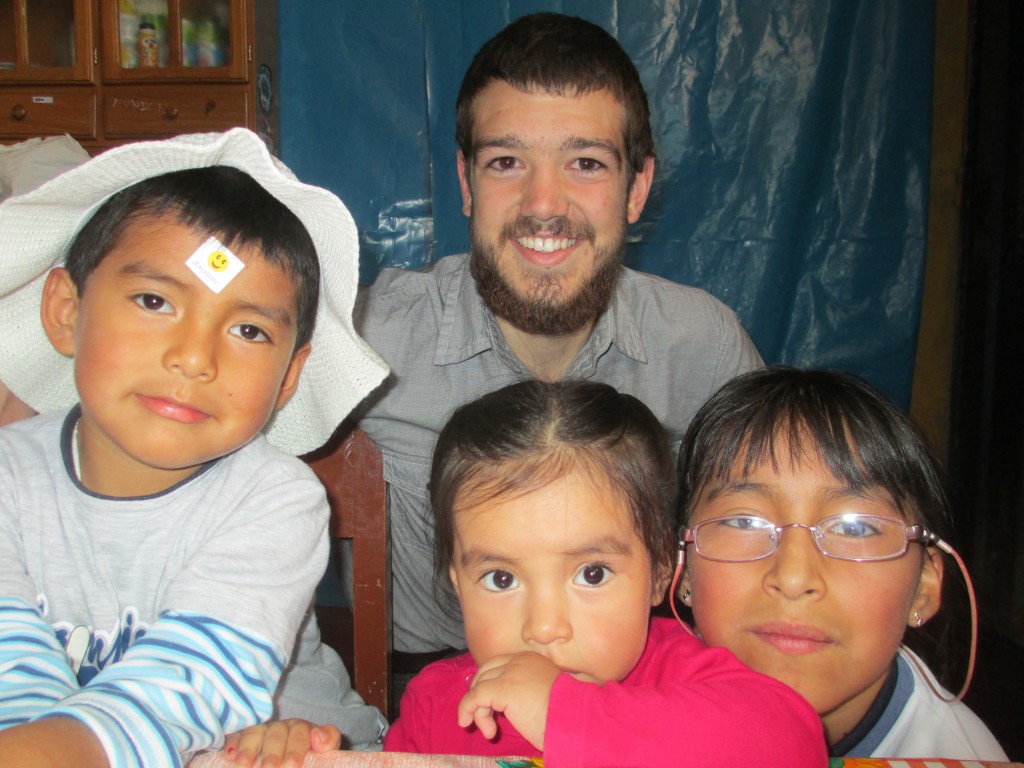Ben Sutter is a senior broadcasting and history major.
I stood by the door waiting to go on a pastoral visit. My host father, the pastor of our church, was away at a conference in Lima, so I would be accompanying some women from the church. It had been a long day for the church, including a funeral service and a burial–the second one for the church in a week. The pain of death was a reality to the congregation and the church members were certainly showing signs of exhaustion after the difficult week.It was under these circumstances that the women at the door around me talked about who from the church would join us on the visit. When no men were found to join us, my host mom turned to me and asked if I would give a message. “Tonight?!” I asked. She said it could be short and told me one of the women would translate into Quechua for me. Before I gave an answer I was ushered out the door and into the night, following the three church women up the side of our mountainous neighborhood.
Here, in Ayacucho, Peru, my role is largely that of a servant, following directions. For me to take initiave here in Peru is to practice presence, to be available when I’m called or asked to do something. To be a servant, I’ve had to put aside my own agendas and self-conciousness about my qualifications to do the work I’m asked to do.
I certainly didn’t feel ready to give any sort of message and I didn’t particularly want to do it, but this is what the community asked of me. In this, I practiced an aspect of servanthood, allowing myself to absorb that which the community offered to me: their trust in God that God could provide, even in the face of a gringo with poor Spanish and no Quechua giving the word of God.
For some reason, Goshen College’s core value of servant leadership has been on my mind here in Peru. I’ve definitely felt the role of the servant here as I fulfill church office tasks or teach basic English to kids and young adults. In this practice of serving, I’ve learned to comprend the needs and desires of the people around. This is important.
However, I’ve been struggling to find myself in a role of leadership. The strength and mystery of servant leadership lies in its joining of two dichotomous words: the humility of a servant with the power of leadership. It’s easy for me to look solely to acts of service for others or to personal self-sacrifice to find servant leadership, but often these actions don’t fulfill the second part of this term—the power of leadership. That’s what I’ve been searching for here in Peru: “Is this truly leadership?”
I think giving that unexpected message may be the first time I have practiced leadership this semester. It was not a leadership I particularly wanted, but a leadership to which the situation and community called me. I by no means gave a strong, convincing message. My words were appreciated not because I used the perfect Spanish verb form or was particularly knowledgeable about the Bible, but simply because I was willing to offer what God put on my heart. In this message, through leadership given to me by others and humility made obvious by my shaky Spanish, I felt the mysterious strength of God forming in me a heart for servant leadership.



